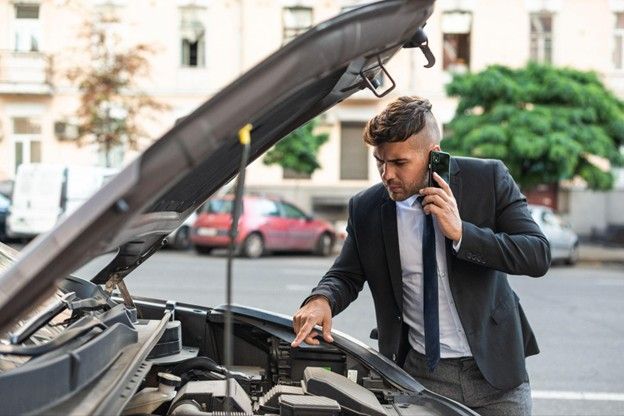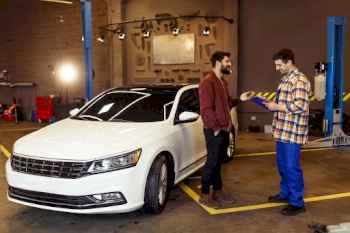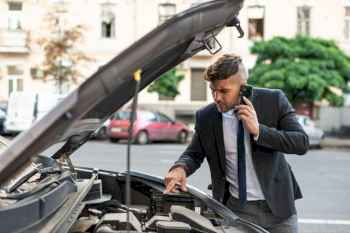How to Junk a Car in Maine That Failed Emissions
 Emissions tests are a necessary part of vehicle ownership in the state of Maine. Designed to minimize environmental harm, these inspections ensure cars meet state and federal air quality standards. However, if your vehicle fails and the cost of repairs outweighs its value, it may be time to consider to Junk a Car. Knowing the proper steps to take can save time, reduce stress, and help you recover some value from the car.
Emissions tests are a necessary part of vehicle ownership in the state of Maine. Designed to minimize environmental harm, these inspections ensure cars meet state and federal air quality standards. However, if your vehicle fails and the cost of repairs outweighs its value, it may be time to consider to Junk a Car. Knowing the proper steps to take can save time, reduce stress, and help you recover some value from the car.
Whether your car has persistent engine problems, a failed inspection sticker, or it simply no longer qualifies for road use, understanding the process of how to junk a car in Maine with failed emissions will help you move forward. One reliable service that many Mainers trust during this process is ByeCar, a solution that simplifies removal and disposal while putting money back in your pocket.
Understanding Maine’s Emissions Standards and Why Cars Fail
Maine enforces emissions testing in select counties, primarily focusing on vehicles from 1996 or newer with onboard diagnostics (OBD-II). The system reads engine data and monitors emission control components. Vehicles can fail for several reasons, including faulty oxygen sensors, evaporative emission leaks, or a malfunctioning catalytic converter. Once a vehicle receives a failed report, the owner must decide whether to repair or retire the car.
High repair costs often prompt people to consider junking their cars, especially older vehicles with extensive wear and tear. Maine allows vehicle owners to voluntarily surrender their car, even if it’s not drivable, through licensed junk car buyers or recycling programs.
Preparing the Vehicle for Legal Junking Procedures
To junk a car in Maine legally, gather the correct documentation. Start with the certificate of title. If the title is missing, Maine allows owners to submit a bill of sale and additional forms as proof of ownership, but having the title simplifies the transaction. Also, remove personal belongings and license plates. Cancel your insurance and notify the Maine Bureau of Motor Vehicles (BMV) about the transfer of ownership.
Disclosing the failed emissions test isn’t always required, especially if the car isn’t being resold. However, reputable companies like ByeCar still prefer complete transparency to streamline the process.
Choosing Between Scrap Yards, Private Buyers, and Auto Recyclers
Not all junk car buyers operate the same way. Maine offers several options for getting rid of a failed vehicle:
- Licensed salvage yards: Dismantle vehicles and sell usable parts. They often require that the car still has key components, such as the engine and transmission, intact.
- Auto recyclers: These businesses extract reusable metals and safely dispose of toxic fluids. They comply with EPA regulations and provide certificates of destruction.
- Private scrap haulers: While sometimes convenient, they often lack proper licensing or offer lowball prices.
ByeCar connects you directly with licensed buyers and handles all paperwork, towing, and environmental compliance, reducing the risk of fines or incomplete disposal.
Estimating Your Vehicle’s Remaining Value Before Disposal
Even a non-functioning car holds value. The weight of the metal, current scrap rates, and the salvageability of the parts all contribute to the price you can expect. Vehicles with rare components or newer builds may fetch higher payouts despite failed inspections.
Before accepting an offer, research current scrap prices in Maine. Use local comparison tools or consult experienced services that offer no-obligation quotes. Many buyers will offer a better rate if you provide accurate information upfront, such as the car’s VIN, make, model, year, and known issues.
Environmental Responsibilities When Junking an Emissions-Failed Vehicle
Maine’s Department of Environmental Protection closely regulates vehicle disposal due to toxic substances like battery acid, engine oil, antifreeze, and refrigerants. Improper disposal leads to contamination of water and soil.
Choose a disposal service that adheres to environmentally responsible practices. Companies must safely drain fluids, recycle metals, and dispose of hazardous materials in a manner that complies with legal requirements. This ensures your vehicle doesn’t contribute to long-term ecological damage.
Legal Requirements to Finalize the Junking Process
Once you’ve selected a disposal option, the legal transfer must be completed. The buyer typically files paperwork with the Maine BMV. Still, it’s your responsibility to verify that the title is signed over and that you’re released from future liability.
Notify the BMV immediately using the Vehicle Registration Cancellation Form (MV-9). Failure to do so could result in future toll violations or tax inquiries if the vehicle remains improperly registered under your name.
Efficient Ways to Schedule Pickup and Get Paid Fast
Many companies, including ByeCar, offer same-day or next-day towing, even if your car is inoperable. Provide accurate access details, such as parking conditions, flat tires, or locked steering, to avoid delays and ensure a smooth operation.
Payment usually occurs upon pickup. Ask whether payment will be cash, check, or electronic transfer. Most legitimate buyers pay immediately to prevent disputes. Be cautious of any operation that requests pre-payment for towing or documentation services.
Additional Tips for a Smooth and Profitable Junking Experience
- Timing matters: Scrap metal values fluctuate, so try to sell when rates are higher.
- Keep a paper trail: Document every step — from communication with the buyer to the final receipt.
- Avoid towing scams: Never accept vague offers or pressure tactics. Work with licensed buyers only.
- Don’t strip valuable parts: Some buyers offer more for complete vehicles. Removing components can reduce your payout unless they are sold separately.
What to Do Next After Junking Your Failed-Emissions Car
Once your vehicle has been hauled away, take time to update your personal and financial records. Cancel any automatic insurance renewals tied to the car. Remove it from your tax and registration documents. You may even qualify for a tax write-off if the vehicle was donated rather than sold.
With the emissions-failed car out of the way, you can now make room for a more reliable, eco-conscious vehicle that meets Maine’s emissions regulations — and enjoy the peace of mind that comes from a job done right.
The post How to Junk a Car in Maine That Failed Emissions appeared first on Gauge Magazine.



